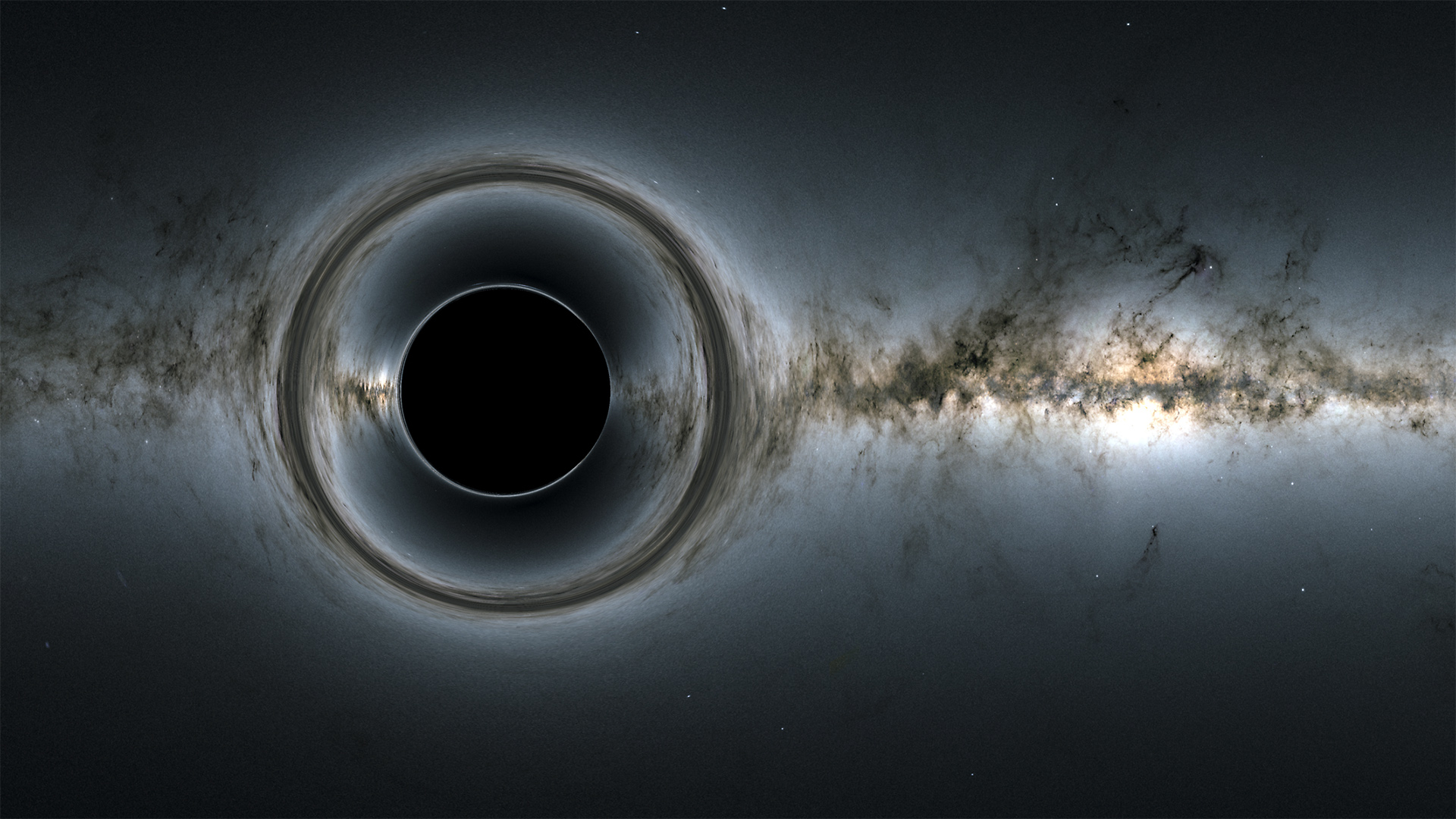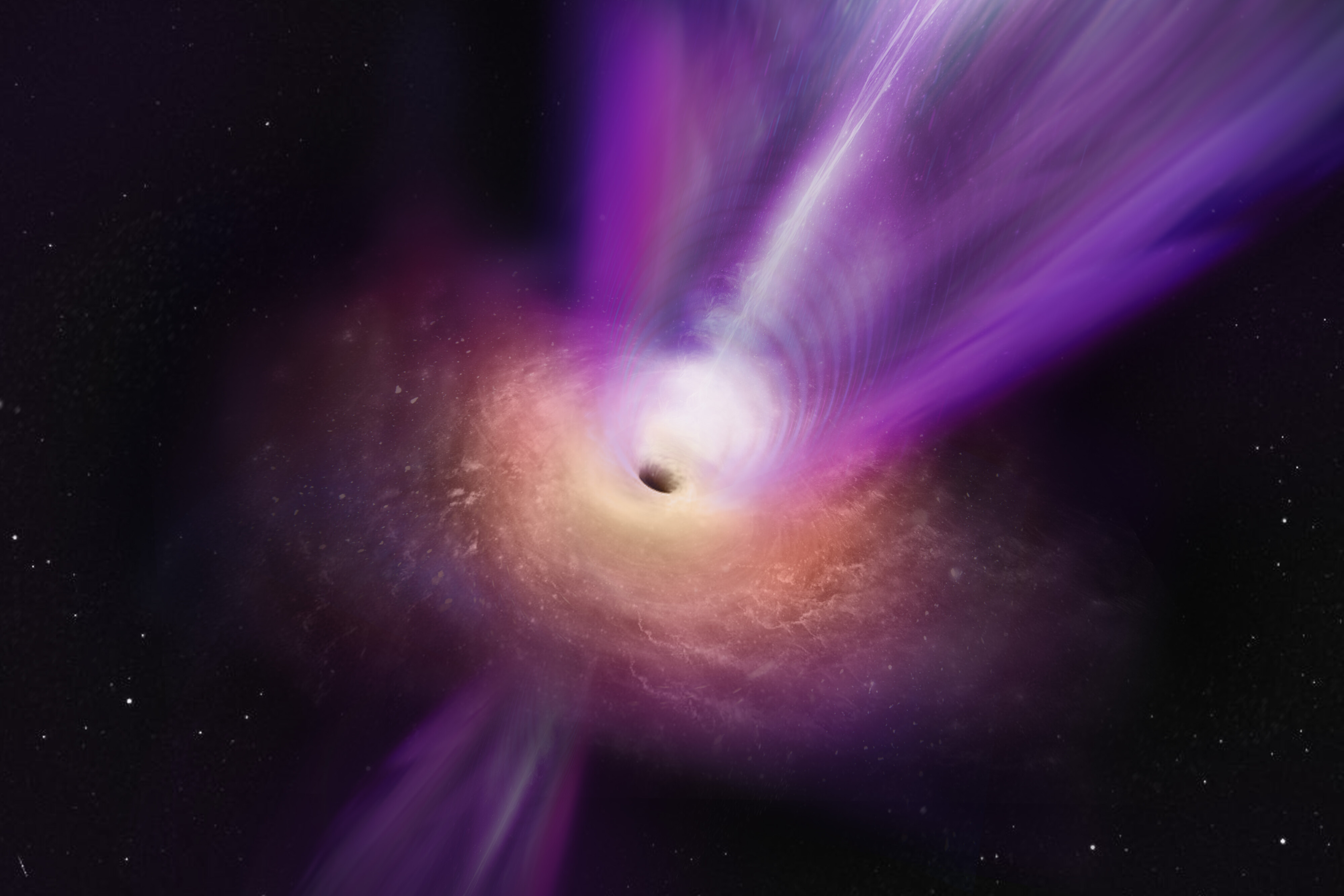
Tiny black holes may have had a big impact on the early universe.
A large population of small black holes could have flooded the young cosmos with particles and radiation, creating their own black hole-powered Big Bang, physicists propose in a new paper.
As of now, there is only one confirmed way to make black holes. You must start with a massive star and then let it die. Near the end of its life, its core collapses under its own weight. With no other force capable of withstanding that pressure, it continues collapsing into an infinitely tiny point: a singularity. Astronomers believe this is how all black holes in the universe, from the stellar-mass ones that populate every galaxy to the supermassive black holes that sit in galactic cores, got their start.
Related: How did cosmic inflation happen — and why do we care?
But there may be another way. The early universe was chaotic and energetic, especially after inflation, the hypothesized event that triggered an incredible expansion event that ballooned our universe to tremendous sizes in less than a second.
When inflation ended, space-time itself shook and vibrated with the released pent-up energies. The universe might have become so violent that random pockets of space-time could have spontaneously reached critical thresholds in density and size, thereby triggering the formation of "primordial" black holes that flooded the universe.
Astronomers have spent decades hunting for these primordial black holes, which were originally proposed by Stephen Hawking, or at least ruling out their possibility. Countless observations have declared an empty search, as any black holes larger than around a billion grams (about the mass of a typical mountain on Earth) would have affected the subsequent evolution of the universe and violated known observations.

Arrested development
But not many researchers have paid attention to the smaller, mountain-size black holes that could have formed in the aftermath of inflation. So a team of physicists examined in detail how these smaller black holes might behave — and how we might detect them. They detailed their findings in a paper posted to the online preprint database arXiv.
All black holes have finite lifetimes. Thanks to Hawking, we know that black holes aren't entirely black. Instead, they slowly release radiation through an exotic quantum process happening at their event horizons. This process, known as Hawking radiation, is incredibly slow. A typical stellar-mass black hole releases only one particle of radiation every year. But smaller black holes release radiation at a faster rate. These smaller primordial black holes wouldn't have lived long, as Hawking radiation would have caused them to evaporate in only a few minutes.
This was well before the next significant epoch in the history of the universe, the formation of the first elements. So these black holes would have been able to escape current observational constraints, because they would have left the scene early enough.
But we can still find ways to detect small primordial black holes, as the researchers detailed in their paper.
The most notable impact is that these black holes could have delayed the evolution of the universe. Our cosmos is always expanding. So after inflation, the density of matter and radiation quickly dropped, as all that material was diluted in an ever-growing volume.
But the primordial black holes could have prevented that typical evolution. As soon as they formed, they would have started emitting Hawking radiation, transforming their mass into radiation. These small black holes could have added extra radiation just as quickly as the universe diluted it, thereby keeping the density constant in the first few minutes after the Big Bang, the physicists explained.
Related: Black holes of the universe (images)
Primordial instincts
This scenario would have put the universe in a sort of "stasis," pausing the normal expansion-driven evolution of the cosmos while the black holes did their thing. The researchers discovered that this would have allowed the black holes to have a number of effects on the universe without violating any known observations. They are born, they do something interesting while the universe is on pause, and they disappear, with the rest of cosmic history unfolding normally.
For example, the evaporation of these primordial black holes might have been responsible for filling the universe with dark matter or dark energy. Or they might have triggered the process of baryogenesis, forcing the universe to have more matter than antimatter.
And primordial black holes also could have flooded the universe with a unique signature of gravitational waves, which are ripples in space-time. Current gravitational wave detectors do not have the sensitivity to find these gravitational waves, but future space-based detectors — like the Laser Interferometer Space Antenna, which is set to launch in the next decade — could.
Follow us on Twitter @Spacedotcom or on Facebook.







